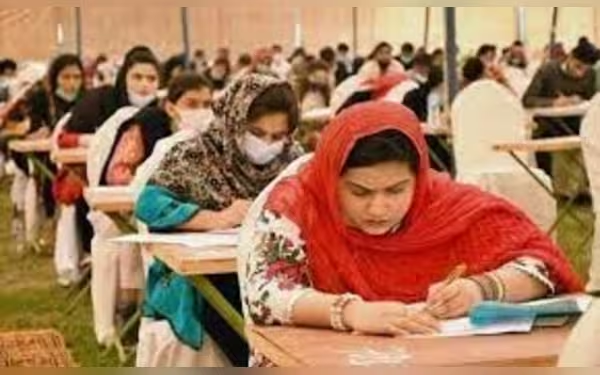Thursday, November 7, 2024 09:58 AM
IHC Demands PMDC Response on MDCAT Examination Issues
- IHC issues notices to PMDC over MDCAT discrepancies.
- Students allege out-of-syllabus questions in MDCAT.
- PMDC plans independent analysis of MDCAT fairness.
 Image Credits: dawn
Image Credits: dawnIHC seeks PMDC's response regarding MDCAT issues raised by students, highlighting examination integrity concerns.
In a significant development, the Islamabad High Court (IHC) has taken a firm stance regarding the Medical and Dental Colleges Admission Test (MDCAT) held last month. The court has issued notices to the Pakistan Medical and Dental Council (PMDC) and Shaheed Zulfiqar Ali Bhutto Medical University, prompting them to respond to a petition that raises serious concerns about the integrity of the examination process.
The petitioners, a group of students, have alleged that the MDCAT, which took place on September 22, contained numerous errors and anomalies. They claim that 30 questions were included in the test that were not part of the syllabus, leading to confusion and frustration among candidates. Additionally, students have pointed out discrepancies in the answer key, further questioning the fairness of the examination.
Justice Arbab Muhammad Tahir, presiding over the case, has requested that both the PMDC and the medical university provide their responses by October 10. The court is particularly interested in whether the PMDC has established any committee to investigate the allegations made by the students. This inquiry is crucial, as it aims to determine if the concerns raised are valid and if any corrective measures have been taken.
During the hearing, the petitioners argued that the university had initially refused to upload the question paper, forcing them to seek legal intervention. Following the court's directive on September 27, the question paper was finally made available, revealing serious discrepancies that the students had previously highlighted. The inclusion of out-of-syllabus questions has raised alarms about the overall assessment process.
Advocate Afnan Karim Kundi, representing the petitioners, expressed his concerns about the MDCAT's ability to accurately reflect the competence of candidates. He noted that the test administered in Punjab was significantly easier, which could lead to an unfair advantage for those candidates, particularly in securing seats in private medical colleges.
In light of these developments, the PMDC has announced plans to conduct an independent analysis of the MDCAT. This initiative aims to ensure that all candidates across the country face a uniform difficulty level in future examinations, addressing the disparities that have emerged this year.
The situation surrounding the MDCAT raises important questions about the fairness and transparency of the examination process in Pakistan. As students prepare for their future in the medical field, it is essential that the authorities take these allegations seriously and work towards a solution that upholds the integrity of the admissions process. The outcome of this case could have lasting implications for the future of medical education in the country, making it imperative for all stakeholders to engage in constructive dialogue and ensure that the system is equitable for all candidates.













